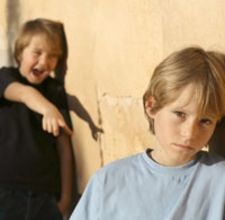

According to recent UK government research by the neighbourhood nurseries initiative (A
National Evaluation of Neighbourhood Nurseries) there is a link between anti-social behavioural
problems and nurseries. The study claimed that, ‘Children who attended for three days per week
or more were significantly more anti-social.’ To add to this,
“Further analysis suggested that, when compared with children who had been attending their
neighbourhood nursery for less than a year, children who had been attending for 18 months or
more were rated as significantly more anti-social.” (Quoted by the BBC)
This is hardly staggering news; it is a conclusion many in the home education community reached
long ago. For example, research by Dr. Paula Rothermel showed that, using standardised
psychological testing, home-educated children demonstrate a higher social aptitude than their
schooled peers. Research in the United States lends further backing to these conclusions; a 2005
Stanford University study, Institutionalized Early Childhood Education and Development by Dr. David Elkind reported that,
“We find that attendance in preschool centres, even for short periods of time each week, hinders
the rate at which young children develop social skills…”
Yet another report, this time by the Southwest Policy Institute, adds further credence to the view
that pre-schooling is disadvantageous for children, saying,
“Contrary to common belief, early institutional schooling can harm children emotionally,
intellectually and socially, and may later lead to greater peer dependency.”
As Dr. Paula Rothermel’s evaluation suggests, these social problems are not limited to nursery schooling.
The Young Life and Times Survey
claims that around thirty percent of pupils in Northern Ireland ‘are bullied at 16.’ The children’s commissioner for England, Professor Al Aynsley-Green, went even further by warning that almost every single pupil in the country is affected by bullying,
“I have had hundreds of in-depth conversations with children since accepting this post, and I can
tell you that the one thing every child I have met has been affected by, with virtually no
exceptions, is bullying.” (Ref.)
With this level of emotional and physical abuse occurring in schools, coupled with the negative
effects pre-schools are demonstrably having on later behaviour, the notion that home education is
harmful to the social development of children seems increasingly absurd. The evidence suggests
that it is institutionalization that poses the greatest threat to the emotional and social development
of the young – not their families.

